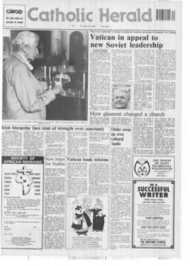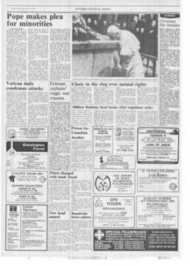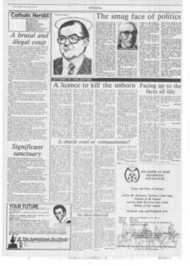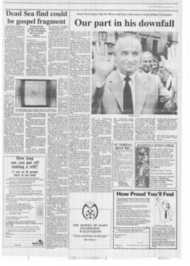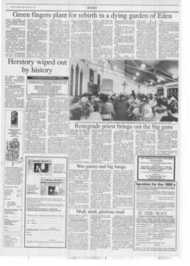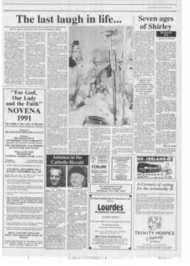Page 3, 23rd August 1991
Page 3
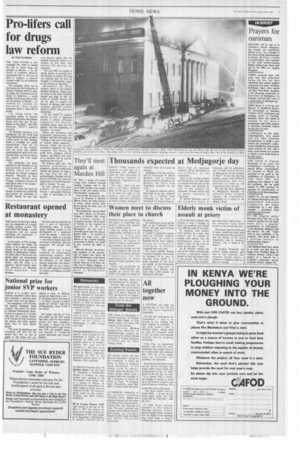
Report an error
Noticed an error on this page?If you've noticed an error in this article please click here to report it.
Tags
Share
Related articles
Doctors Targeted In First Ever National Campaign Against...
Pro-lifers Vow To Fight New `liberal' Abortion Regulations
Spuc Writes To Doctors In Bid To Get Drugs Banned From...
New Campaign On Abortion Pill
Pro-life Groups Suffer High Court Setback Over Killer Pill
Pro-lifers call for drugs law reform
by Paul Goodman PRO Lifers launched a new campaign this week to change the way in which drugs are licensed in Britain — as the Guild of Catholic Doctors announced that it will not be able to support a boycott recently urged by anti-abortion movements.
The campaign, being run by the Society for the Protection of Unborn Children (SPUC), aims to oblige the Committee on the Safety of Medicines — which decides which drugs may or may not be licensed in Britain — to publish its reasons for approving those drugs eventually given a clean bill of health.
"As things stand, the committee makes its decision behind closed doors and nobody knows why they give the goahead on any drug," said John Smeaton, SPUC's general secretary.
"In America, however, it is mandatory for the Food and Drug Administration to produce a brief report on their findings which is available for public examination. They are far stricter than in this country, with the result that neither thalidomide nor opren were ever licensed there, as was the case in this country with such tragic results."
The campaign has been sparked by the licensing of the controversial abortion pill RU486, which has been produced by French company Roussel. "Recently we have seen another Roussel drug, Propess, withdrawn because of side effects after it was issued," said Mr Smeaton.
"The last straw has been the manner in which our authorities fast-tracked the licensing of RU486, despite the fact that
even Roussel admit that the possible long-term effects on a woman or any baby who survives the abortion are unknown.
"Yet even MPs are unable to obtain details of precisely how the decision to licence the drug was reached, and we have no freedom of information statute in this country as elsewhere."
Meanwhile, Dr Peter Doherty, editor of the Catholic Medical Quarterly, makes clear
in a letter to this week's Catholic Herald (see page 4) that the
Guild of Catholic Doctors will not be able to support the boycott of Roussel and parent company Hoescht recently urged by SPUC and other prolife groups.
"As the Guild of Catholic Doctors is now a registered charity it cannot officially supported the boycott; charitable status does not live happily with the organising of boycotts," he writes.
When the initiative was originally announced, Dr Doherty said that the guild was "willing to take part in the kind of boycott being suggested."
Sources within the pro-life movement emphasise the legal constraints that prevent the guild from pledging official support, and believe that most of its members will be actively supporting the boycott.
Dr Doherty adds that "the medical termination of pregnancy, thereby avoiding the trauma and distress of surgery, has long been the aid of gynaecologists. Perhaps with the advent of RU486 they sense the Opportunity of transferring their guilt to women," he says.
He also stressed that large numbers of non-Catholic doctors — particularly Moslems — plan to participate in the boycott.
blog comments powered by Disqus


